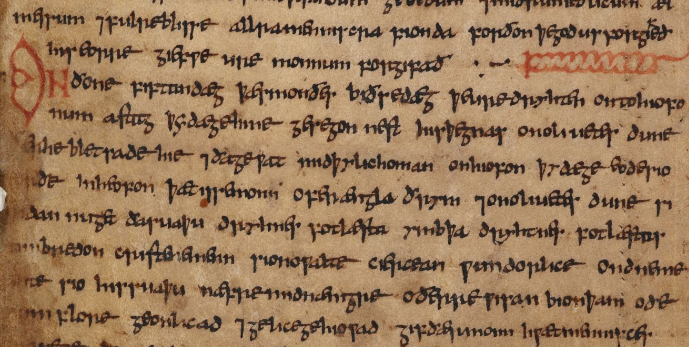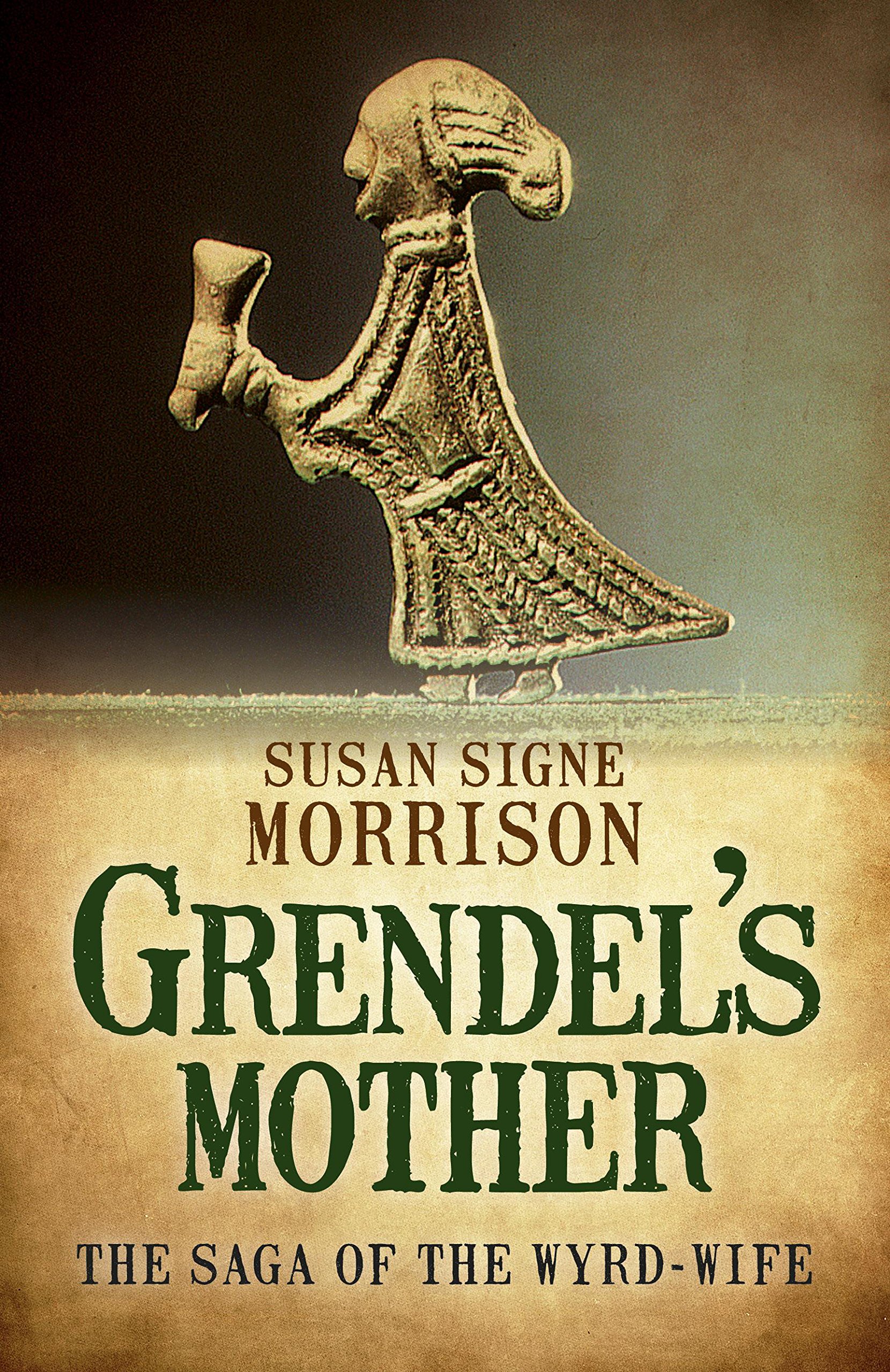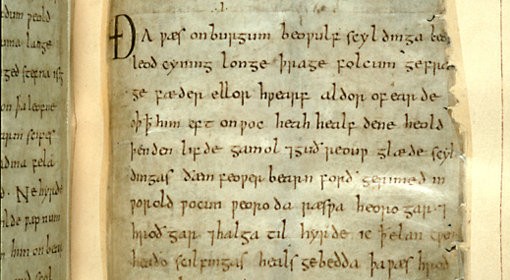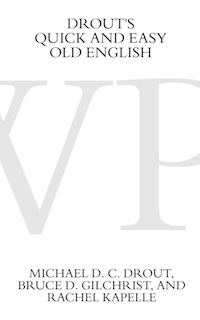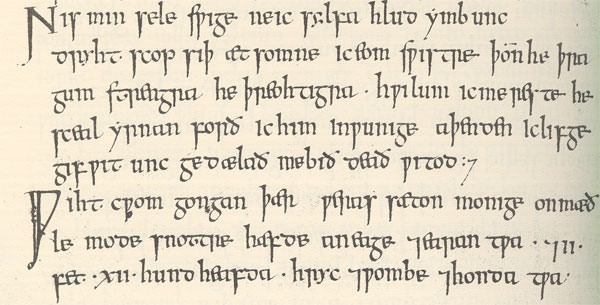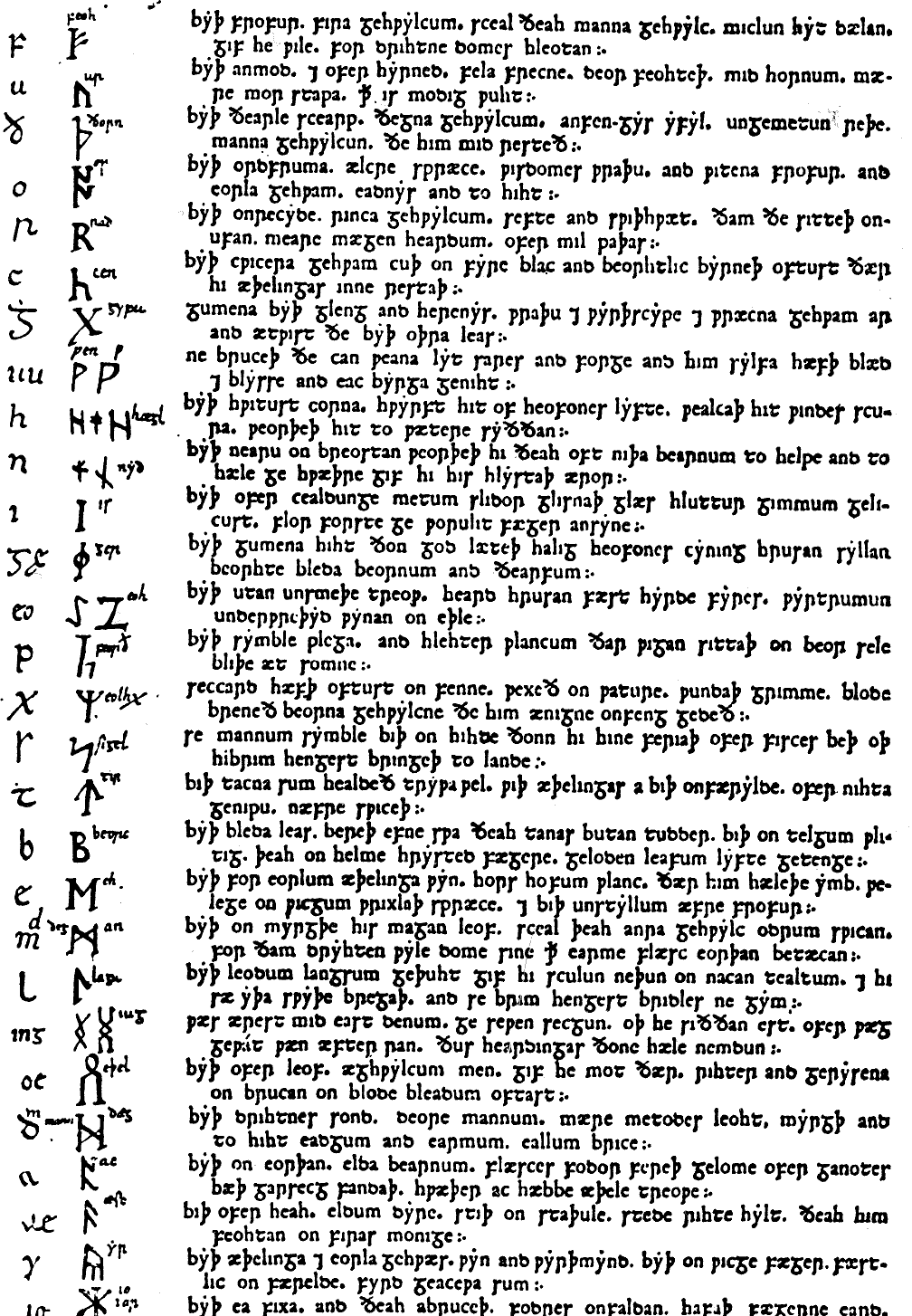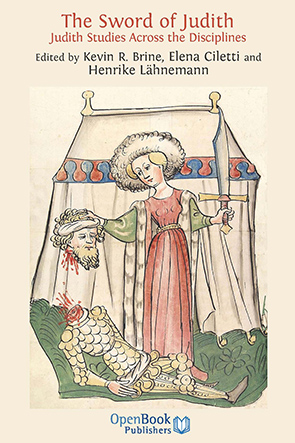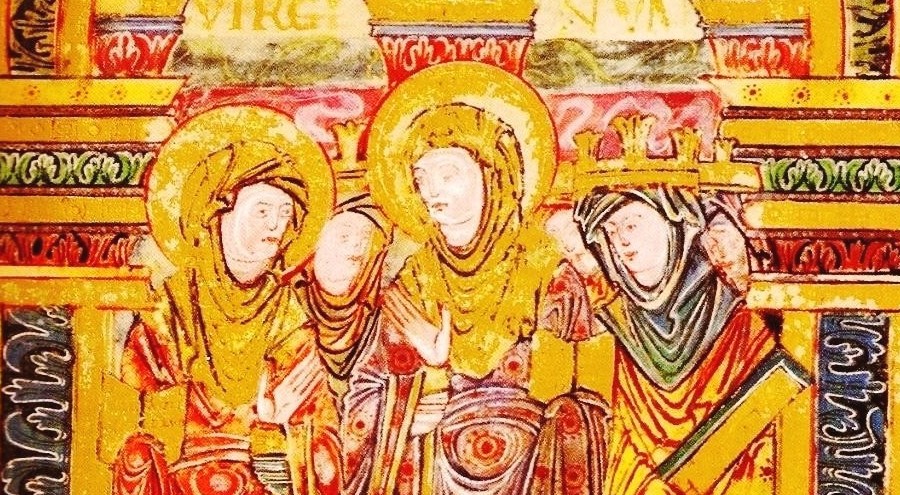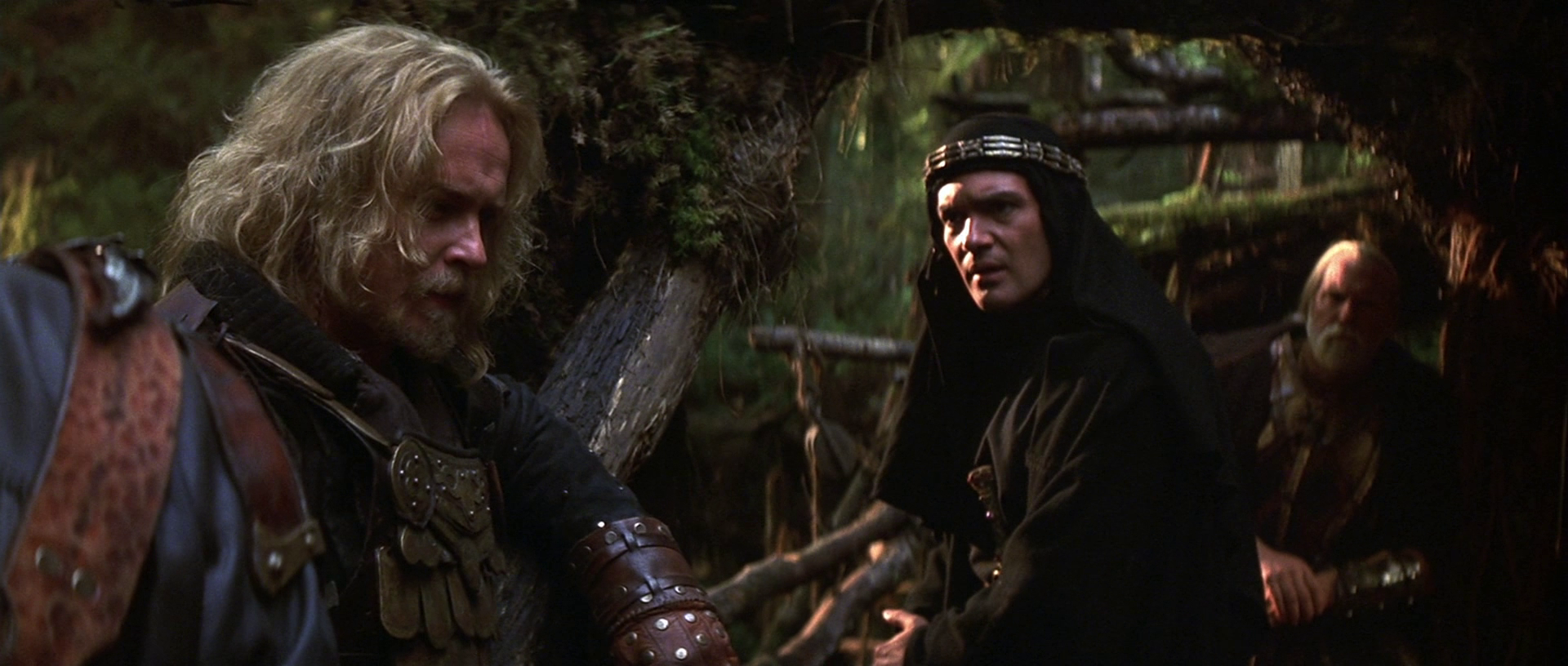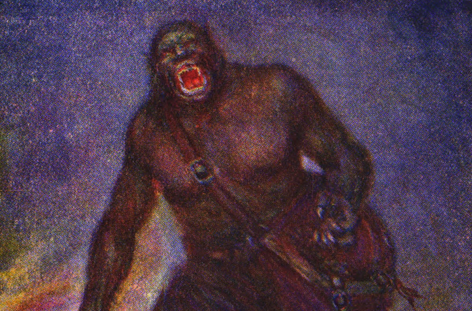Mann and Gender in Old English Prose: A Pilot Study
This article aims to present a preliminary study of the various uses of mann as attested in Old English prose, particularly in its surprisingly consistent use by an individual author, namely that of the ninth-century Old English Martyrology.
The Insular Landscape of the Old English Poem The Phoenix
The Old English poem The Phoenix, found in the Exeter Book (fols. 55b–65b), describes the mythical bird, the Edenic landscape it inhabits and the cycle of death and rebirth that it enacts in an extended Christian allegory.
Powerful Patens in the Anglo-Saxon Medical Tradition and Exeter Book Riddle 48
This article discusses Exeter Book Riddle 48 in light of its proposed solutions.
Baptism in Anglo-Saxon England
This thesis examines the lexical field of baptism in Old English. The lexical development of the field and the semantic development of the individual lexemes were evaluated: the verbs fulwian, cristnian, depan, dyppan, and the vocabulary for baptismal water in Old English. At every stage of the project, the linguistic data was correlated to theological, liturgical and cultural backgrounds.
The Ruin: The Past Dreaming of the Past
Besides being chillingly beautiful, this is one of those fantastic moments for literature scholars in which, by describing what life might have been like in a former time, the poet reveals something of his own age: what people of his time thought glory days should be like.
BOOK REVIEW: Grendel’s Mother: The Saga of the Wyrd-Wife by Susan Signe Morrison
Grendel’s Mother tells the story of Brimhild, a child found abandoned in a boat on the shores of Denmark. Taken in by a…
Senses of the Past: The Old English Vocabulary of History
How did the Anglo-Saxons think about history?
Hostages in Old English Literature
Hostages in Old English Literature examines the various roles that hostages have played in Anglo-Saxon texts, specifically focusing on the characterization of Æscferth in The Battle of Maldon.
Book Review: Drout’s Quick and Easy Old English
It may seem a little incredible that anyone would need a textbook to learn an older version of his or her mother tongue, but learning Old English (Anglo-Saxon) takes some time and effort – and a good textbook.
Riddles in the Dark Ages
Latin riddles depended on knowledge of a specific subject in order to be deciphered, while English riddles were often about common things like the weather.
The Old English Translation of Bede’s Historia Ecclesiastica Gentis Anglorum in its Historical and Cultural Context
Bede’s Historia Ecclesiastica Gentis Anglorum (HE), written c. 731, enjoyed a great popularity among the Anglo-Saxons and Carolingians and was one of the most popular texts in medieval Europe.
The Anglo-Saxon War-Culture and The Lord of the Rings: Legacy and Reappraisal
The literature of war in English claims its origin from the Homeric epics, and the medieval accounts of chivalry and the crusades.
The Anglo-Saxon runic poem: a critical reassessment
I consider the runic poem in its most basic form, as a runic alphabet, and compare its runes and rune-names with the other Anglo-Saxon runic material collected in the Thesaurus.
The Hero’s Journey: Beowulf, Film, and Masculinity
Beowulf is one of many examples of a story that employs the rhetoric of the hero. The plight of the main character Beowulf is the focus of the tale, and the tasks that he must overcome throughout the course of the poem provide insight into the development of the character of the hero.
Judith in Late Anglo-Saxon England
Judith makes two spectacular appearances in the Old English corpus: she is the brave heroine of a poem which is included in one of the most famous manuscripts of the late Anglo-Saxon period, the Nowell Codex, which also contains the heroic epic, Beowulf.
Ten Great Anglo-Saxon Girls’ Names
We’ve come up with our ten favourite girls’ names – if you are considering a different type of baby name, perhaps you will pick one of these!
Amending the Ascetic: Community and Character in the Old English Life of St. Mary of Egypt
Among the most eligible saints for such treatment, Mary of Egypt deserves particular consideration: her popularity is evidenced by over a hundred extant Greek manuscripts of her Life and her uniquely prominent position in the Lenten liturgical cycle in the Eastern Church.
How well do you know the origins of English words? – Part 2
Can you tell which English words come from Anglo-Saxon or Old Norse?
(Re)casting the Past: The Cloisters and Medievalism
In this essay, I focus on a variety of texts printed using Anglo-Saxon type between 1566 and 1623 in an effort to explore the use of Anglo-Saxon typeface in the early modern period as the use of the Old English language progressed from polemical truncheon to historiographical instrument.
Making Sacrifices: Beowulf and Film
This essay reviews opening scenes in some recent film Beowulfs, which, although they have nothing at all to say about Scyld Scefing, suggest a sacrificial reading of the prologue and perhaps even the whole poem.
How well do you know the origins of English words?
Can you tell which word derives from the English of Anglo-Saxon times, and which word came from French?
Old English Words for Relics of the Saints
This study begins with a review of some Latin terms and of certain material traits common to early medieval relic-cults, since these profoundly shaped the Old English vocabulary surveyed in the second part of the paper.
Grendel: Boundaries of Flesh and Law
In Beowulf, Grendel presents itself as a figure of inescapable ambiguity and as an embodiment of paradox that causes consternation in the human community.
The original Frenglish
When France was speaking English without the prompting of a war or was it England who was speaking French….
Old Norse Influence in Modern English: The Effect of the Viking Invasion
It is estimated that there are around 400 Old Norse borrowings in Standard English. These borrowings are amongst the most frequently used terms in English and denote objects and actions of the most everyday description.
